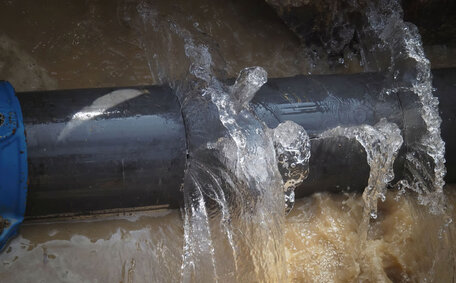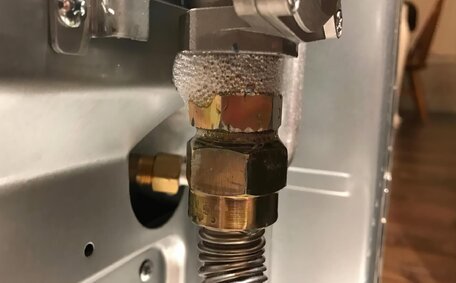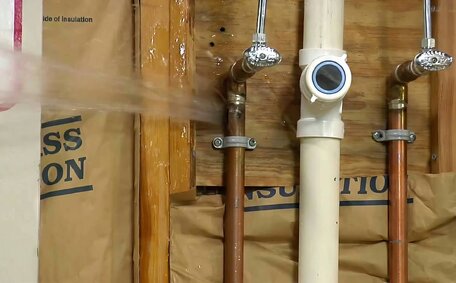Introducing Sewer Systems and How They Work
Sewer systems, which include key sewer pipes, safely transport sewage from your home to treatment facilities. They consist of underground sewer lines that connect individual properties to the larger main sewage line your property is part of. Gravity propels sewage from your home through a network of pipes, starting from smaller ones and merging into larger sewer lines, towards the municipal wastewater treatment plant.
Maintaining your home’s drains is essential to prevent blockages that disrupt the sewerage system and lead to clogs or overflows. Blocked sewer lines can cause backups, affecting homes, properties, and the local environment. Raw sewage, containing dangerous pathogens and bacteria, can overflow and spread if your main sewer line becomes obstructed.
Property owners are responsible for resolving sewer issues on their land, while municipalities maintain the broader sewer infrastructure and treatment facilities. Homeowners should ensure their on-property sewer pipes are clear, while municipal authorities manage the main lines and treatment processes. Working in tandem to maintain the entire system, linking households to the city sewer, is essential to avert disastrous overflows of raw sewage.
Warning Signs of Sewer Blockages and Overflows
Stay alert for early warning signs of potential sewer blockages or imminent overflows:
- Gurgling sounds from floor drains, toilet bowls, or tub shower drains
- Very slow draining from fixtures throughout your house
- Pools of standing water outside your home’s perimeter, indicating a potential issue near the sewer cleanout, whether in your yard or basement
- Unpleasant sewage smells inside or surrounding your home
- Sunken areas or water accumulation in your yard indicating potential problems with your sewer line
- Spillage from overflow relief gullies, leading to sewage overflow in external areas
Promptly calling for professional assistance upon identifying these signs can help avert severe backups and overflows, and mitigate property damage which might be covered by insurance. Sewage overflows also compromise your health through contamination, making isolation and disinfection of the affected area crucial.
Don’t hesitate to call a professional plumber if you notice any of these red flags. A minor clog can rapidly escalate into a serious problem if left unaddressed too long. To ensure regular maintenance, make sure your pipes are functioning securely to forestall hazardous spills.
What Causes Sewer Clogs and Backups
Common reasons for sewer clogs and backups include:
- Tree roots - Tree roots can infiltrate sewer pipes through cracks and joints, creating significant blockages and disrupting sewage flow.
- Grease and fats - Fats and oils from cooking or washing machine waste can solidify in drains, causing clogs when flushed down sinks.
- Foreign objects - Flushing inappropriate items like wipes, diapers, sanitary products, and paper towels can get lodged and cause clogs.
- Pipe issues - Cracked, broken, misaligned, or sagging pipes allow solids and roots to catch and accumulate.
- Heavy debris - Mud, silt, grit, and sand entering the sewer from damaged manholes or broken main lines can settle and restrict flow.
Over time, minor clogs can accumulate in your sewage system, gradually leading to restricted flow and potential blockages. Small root masses, grease globs, and debris collect in pipes over time, becoming major obstructions. Misuse, such as pouring fats, oils, and grease down drains, can worsen blockages and lead to sewage backups.
Pinpointing and managing the elements that may clog your sewer can prevent backups. Drain cleaning by professionals, pipe repairs, manhole fixes, and educating the public on appropriate waste handling can do much to prevent issues.
Preventative Measures to Avoid Sewer Issues
Property owners can take key preventative measures to avoid costly sewer problems:
- Have your sewer line professionally inspected and cleaned regularly - usually every 1-2 years. Catching and clearing minor blockages early prevents major backups.
- Fit screens on your sewage line to trap debris and help prevent clogs.
- Refrain from disposing of other items like food scraps, fats oils grease, and similar substances down drains. Allow them to cool and dispose in the garbage instead.
- Refrain from flushing anything down your toilet, including excess toilet paper and other non-biodegradable products. Products like wet wipes, tampons, condoms, and dental floss can snag in pipes and contribute to blockages.
- Scrutinize the location sewer lines occupy by checking for root intrusion above the ground. Roots can be cleared before causing major damage.
- Mend leaky fixtures promptly to protect the integrity of your household’s plumbing system and reduce the strain on your local water and sewage system, safeguarding your water supply.
- Replace old clay or cast iron pipes prone to cracking and blockages with modern PVC.
Adhering to correct usage and disposal instructions ensures sewer drains perform at their best. Regular check-ups pinpoint smaller concerns that you should do before they burgeon into your most dreaded emergencies, helping you learn more about your sewer system’s health. A mix of vigilance, maintenance, and upgrades keeps sewage smoothly flowing.
Effective Drain Cleaning Techniques
Knowing how to unblock drains is key in preventing sewer backups and overflows. Many homeowners wonder, 'How can I effectively unblock my drain?' There are multiple effective drain cleaning techniques homeowners can attempt prior to enlisting professional aid.
For minor clogs, using a plunger to dislodge build-up can be an effective remedy. Repeat this process as necessary.
Cover the overflow hole with a plunger and vigorously work it multiple times to loosen the blockage. Pouring boiling water down the drain can help dissolve grime and clear blockages; do so carefully to avoid splashing.
Natural drain cleaners like baking soda, vinegar, and lemon juice help break down organic gunk. Repeat weekly. Avoid chemical drain cleaners - they damage pipes.
Combine 1/2 cup of baking soda with 1/2 cup of vinegar, pour the mixture down the drain, and wait 30 minutes before flushing with hot water.
In some cases, persistent or substantial clogs require that you hire professional plumbing services for assistance. They have high-pressure water jets and mechanical snakes to clear stubborn obstructions. Technicians can also inspect pipes with cameras to identify intruding roots or broken sections needing repair.
Remember, DIY drain cleaning has its limitations. If repeated attempts to clear a clog fail, if multiple drains are blocked, or you have sewer backups, contact your plumber to prevent further damage to your plumbing system.
DIY Solutions vs Calling a Professional
Minor sewer line blockages can sometimes be resolved with basic DIY methods such as using rubber gloves and a plunger. Techniques like plunging clogs or using natural drain cleaners may unclog simple obstructions, allowing you to clean up minor issues without compromising your entire septic system. Yet, when your sewer backs up, complexities that mandate the use of professional equipment and expertise, similar to those needed for septic tank issues, can occur.
Attempting major repairs without the necessary expertise can lead to additional damage, injuries, contamination, and breaches of plumbing regulations. Instances like sewage overflows necessitate protective clothing such as hazmat suits and specialised disinfection techniques that frequently fall under the guidance of the health department. Meddling with the local council governed public sewer connections also demands official approval and supervision.
Trust Randwick Plumbing’s 30+ years of experience for comprehensive sewer repair and service:
- Dynamic hydrojetting to effectively clear the main drain from stubborn clogs and hard debris DIY gear can’t handle.
- Video camera pipe inspections to pinpoint damaged sections needing repair.
- Advanced clearing of tree root infiltrations.
- Complete attention to deal sewage contamination and disposal per health codes.
- Coordination with councils for main line issues.
- Conforming plumbing repairs meeting all regulations.
Don’t risk DIY mistakes - contact your local licensed plumber, as our professional equipment and licenced techs understand how the main sewer line can be efficiently cleared and work fast to solve sewer problems safely. Contact Randwick Plumbing at 1300 349 338 or [email protected] for reliable solutions.
The Environmental Impact of Sewage Problems
Ignoring sewage problems can lead to dire environmental repercussions. When sewers overflow or backup due to blockages, Untreated sewage can spill out onto streets, yards, and into waterways when sewer mains are compromised.
This untreated human waste contains harmful bacteria, viruses, parasites and hazardous materials. Once liberated, it introduces significant health and safety risks for your family and severely taints nearby ecosystems.
Sewage discharges can cause eutrophication in water bodies, leading to oxygen depletion and harm to aquatic life. Furthermore, sewage can clog overflow relief devices and trigger algal blooms, resulting in the large-scale die-off of marine plants and animals. The presence of chemicals and heavy metals in spillages can also devastate local wildlife.
It is crucial to prevent overflows and ensure proper sewage disposal to protect the environment. Installing overflow relief devices, clearing blockages promptly, and preventing fats and oils from entering drains can protect the environment from the harmful effects of raw sewage. These actions also safeguard the quality of our vital drinking water sources from contamination.






